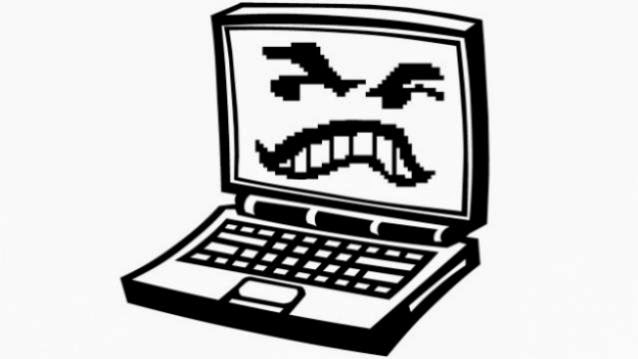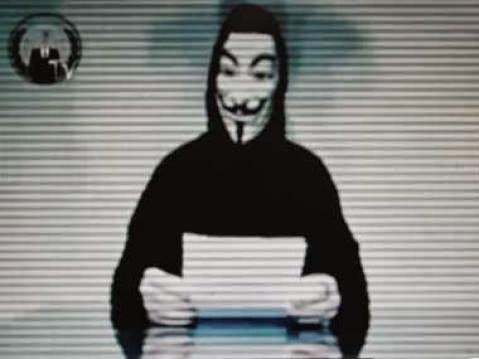Lizard Squad, which took down PSN and Xbox Live have openly announced their new target – Tor. Tor is a network that works at keeping your online identity anonymous and the hacking group already had already added thousands of relays. Now, Lizard Squad sounds creepy anyway, but there are several others calling themselves cuddly names like ‘Kitten’ and ‘Panda’ and are equally dangerous. Let’s take a quick look at some of the most dangerous hacking groups in the world.
Anonymous
Anonymous needs no introduction. Founded in 2003, the hacking group pops its head anywhere Internet censorship prevails. Just a couple of years ago, we saw the infamous group emerge in India to fight against Internet censorship being imposed on netizens. From bringing down the Congress and the Supreme Court websites in retaliation to India’s new Internet laws and the blocking of websites
like The Pirate Bay and Vimeo to hacking BJP and its websites, the group has been quite active in India. In the past, we’ve seen the US bring criminal charges against suspected members of the hacking group for allegedly attacking government, credit card and lobbying websites in a campaign in support of internet file-sharing. Last year it hacked Strait Times for a misleading article and just recently threatened a major blackout of Chinese and Hong Kong government websites.
Team cyber warriors
From celebrities to government websites, ‘hacking’ or ‘cyber crime’ isn’t a thing of the west anymore. Over the past couple of years, we’ve seen several such incidents in India too. Recently, a group calling itself ‘Team Cyber warriors’ emerged that went on to deface celebrity websites like the South superstar Mohanlal with a disturbing message and Pakistan’s flag. The same group went on to hack the Press Club of India website. It was a retaliation by Cyber Warriors against the hacking of the Pakistan People’s Party by alleged Indian hacker group called Black Dragon. With the tensions happening across the border, hackers have started their own battle in the virtual world, too.
Chaos Computer Club
Now, hacking isn’t a thing of the modern world either. The hacking group Chaos Computer Club was formed in Germany in 1981. The group became popular on hacking into the German Bildschirmtext computer network and stealing 134,000 Deutsch Marks from a Hamburg bank. It wasn’t for money as they returned it the next day and showed how the security system was flawed. Some group members were also known to hack into corporate and government computers in the US during late 80s. They’ve also used hacking to retaliate against French nuclear testing.
LulzSec
Lulzsec, a group that enjoys exposing security flaws, has been active since 2011. It’s motto is ‘laughing at your security’. The hacking group has targeted popular sites like Fox.com, X-factor database, Sony, the CIA and others. In 2012, some LulzSec members were arrested including their leader apparently codenamed Sabu. However, within three months, the group announced that it is active again. Lulzsec is responsible for causing billions of dollars worth of damages to sites.
Syrian Electronic Army or Deadeye Jackal
The Syrian Electronic Army or called ‘Deadeye Jackal’ by the CrowdStrike is a political activist group supporting the Syrian President Bashar Assad. It had hacked into scores of websites starting late last year to early this year, especially in the US media. From the Associated Press and Financial Times’ Twitter accounts to CNN’s Facebook and Twitter pages, none has been spared. The group also posted the contact information of Steve Ballmer, Microsoft Corp’s retiring chief executive, on its Twitter account along with the message, “You can thank Microsoft for monitoring your
accounts/emails using this details. #SEA.” That message was an apparent reference to revelations last year by former National Security Agency contractor Edward Snowden that Skype, which is owned by Microsoft, was part of the NSA’s program to monitor communications through some of the biggest U.S. Internet companies.
Derp
Derp is infamous for taking down several gaming sites in late 2013. It took down multiple gaming sites and servers through DDoS attacks. The group managed to take down Riot Games’ League of Legends, Dota 2, Club Penguin, servers. They also took down Battle.net and EA.com.
Magic Kitten
The hacking group Magic Kitten is from Iran. Believed to be existing from 2009, it targets political dissidents in Iran and is known for its attacks in November 2013.
Some other hacking groups include Numbered Panda from China known to send phishing emails and cyber threat from Russia called Energetic Bear.















